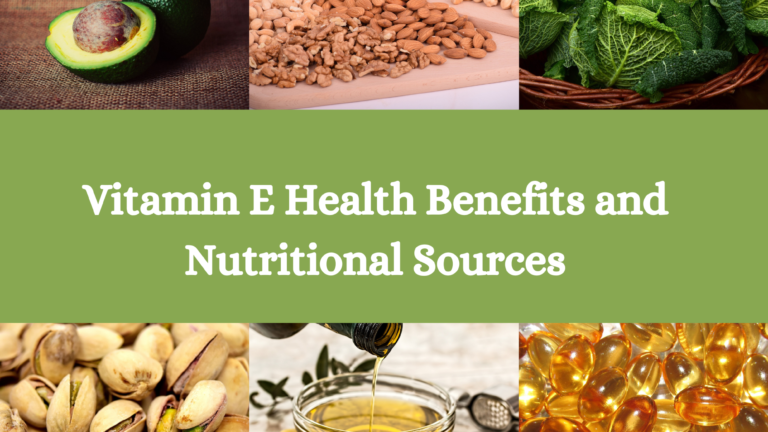Vitamin E Health Benefits and Nutritional Sources
What is Vitamin E?
Vitamin E is a fat-soluble nutrient that plays an important role in maintaining good health. It is an antioxidant that helps protect cells from damage caused by free radicals, which are unstable molecules that can harm cells and contribute to the development of chronic diseases such as heart disease, cancer, and Alzheimer’s disease. In this article, we will explore the health benefits of vitamin E and the best sources of this nutrient.
Wellhealthorganic.com:Vitamin-E-Health-Benefits-and-Nutritional-Sources
What are the Nutritional Sources of Vitamin E?
1. Nuts and Seeds
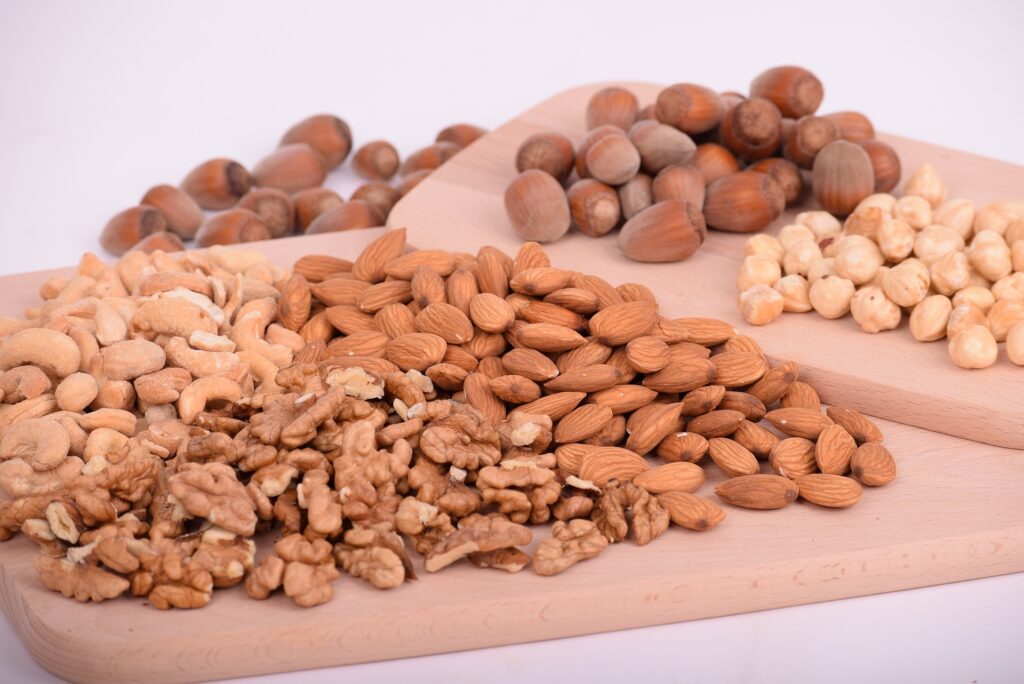
Nuts and seeds are some of the best sources of vitamin E. Almonds, sunflower seeds, hazelnuts, and peanuts are particularly high in this nutrient. A handful of nuts or seeds each day can provide a significant amount of vitamin E.
2. Vegetable Oils
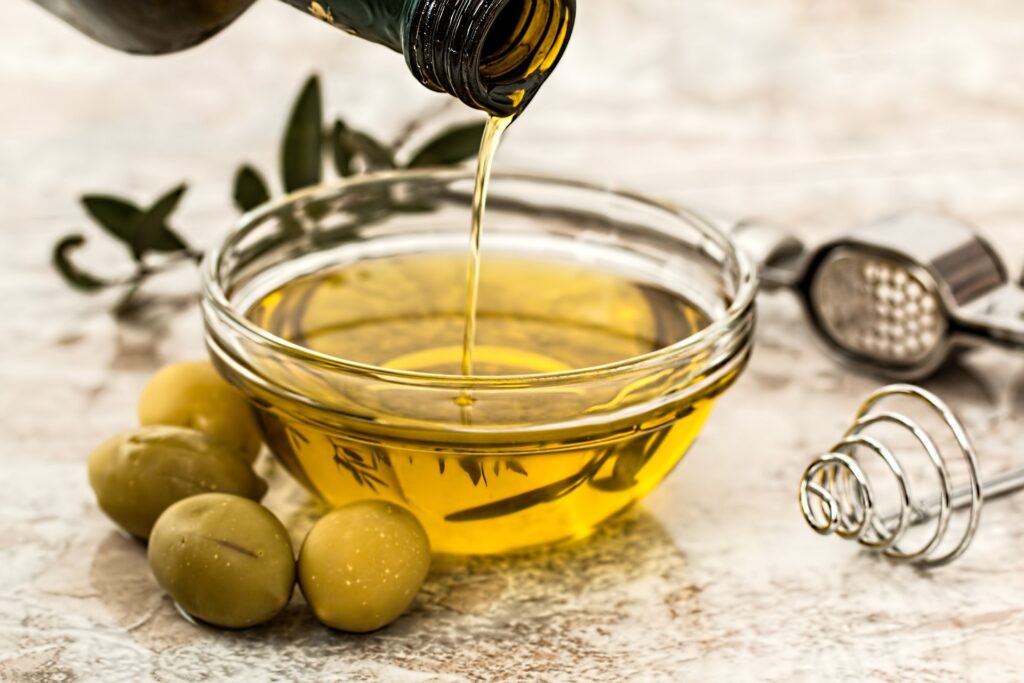
Vegetable oils such as olive oil, corn oil, sunflower, safflower, and soybean oil are good sources of vitamin E. These oils can be used for cooking or added to salads and other dishes for extra nutrients.
3. Leafy Greens

Leafy greens such as spinach, kale, and collard greens are good sources of vitamin E. These vegetables can be eaten raw in salads or cooked in a variety of dishes.
4. Avocado
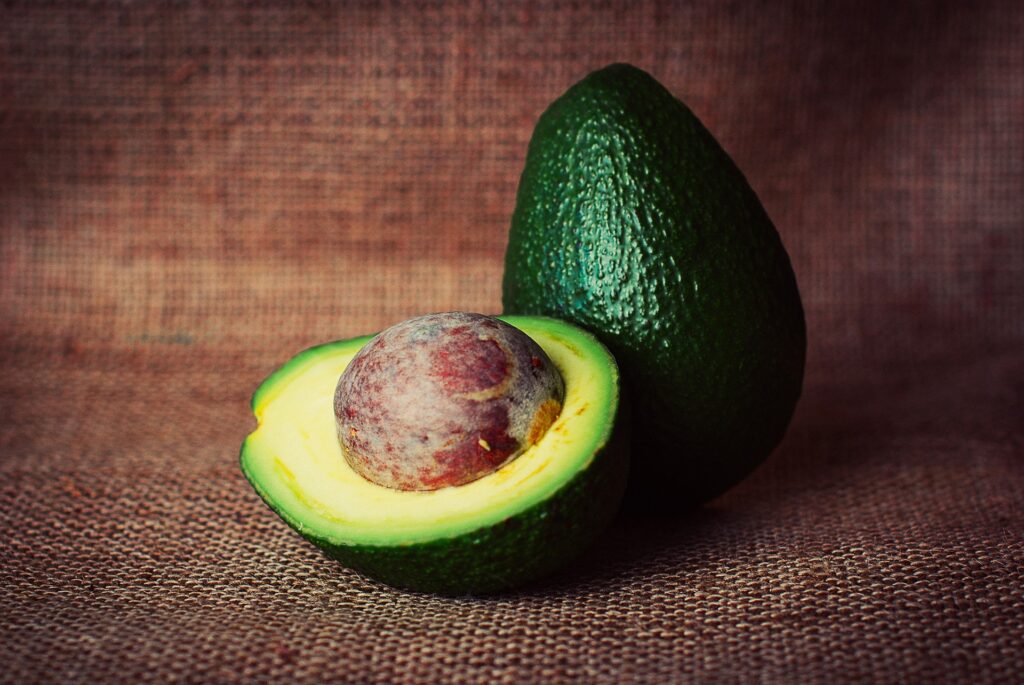
Avocado is a great source of vitamin E, as well as other nutrients such as fiber and healthy fats. It can be eaten on its own, added to salads, or used to make guacamole.
5. Fortified Foods
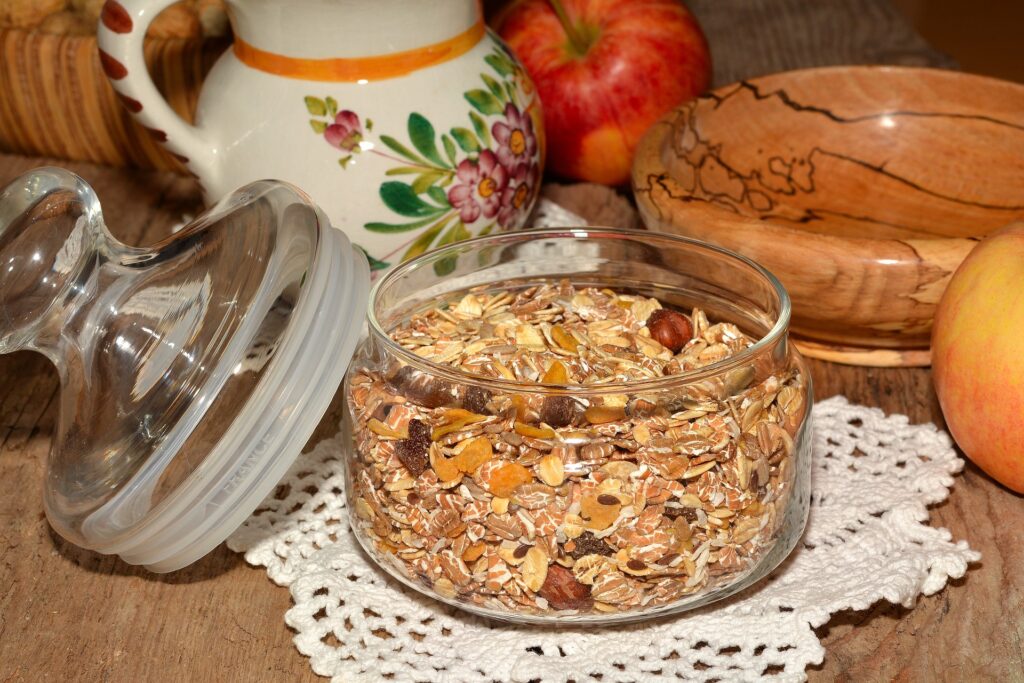
Many breakfast cereals, breads, and other foods are fortified with vitamin E. Check the nutrition label to see if a food has been fortified with this nutrient.
What are the health benefits of Vitamin E?
1. Antioxidant Protection
Vitamin E is one of the most important antioxidants in the body. It helps protect cells from oxidative stress caused by free radicals and prevents cellular damage. This is important for maintaining healthy skin, preventing premature aging, and reducing the risk of chronic diseases such as heart disease and cancer.
2. Immune System Support
Vitamin E helps support the immune system by promoting the production of immune cells and regulating their activity. This is important for preventing infections and reducing the risk of autoimmune diseases.
3. Heart Health
Vitamin E has been shown to have a positive effect on heart health. It helps to reduce inflammation, lower cholesterol levels, and improve blood flow. This is important for reducing the risk of heart disease, stroke, and other cardiovascular diseases.
4. Skin Health
Vitamin E is important for maintaining healthy skin. It helps to protect the skin from damage caused by UV radiation and environmental pollutants, and it helps to moisturize the skin and reduce inflammation. This is important for preventing premature aging and reducing the risk of skin cancer.
5. Eye Health
Vitamin E is important for maintaining good eye health. It helps to protect the eyes from oxidative damage and reduces the risk of age-related macular degeneration, cataracts, and other eye diseases.
6. Cancer Prevention
Vitamin E has been shown to have a protective effect against cancer. It helps to prevent DNA damage and inhibit the growth of cancer cells. This is important for reducing the risk of certain types of cancer, including breast, lung, prostate, and colon cancer.
7. Brain Health
Vitamin E is important for maintaining good brain health. It helps to protect the brain from oxidative damage and reduces the risk of cognitive decline and Alzheimer’s disease.
8. PMS Relief
Vitamin E has been shown to be effective in relieving symptoms of premenstrual syndrome (PMS), such as breast tenderness, mood swings, and cramps. This is important for improving the quality of life for women who suffer from PMS.
9. Fertility
Vitamin E is important for both male and female fertility. It helps to improve sperm motility and reduce oxidative stress in men, and it helps to improve egg quality and reduce inflammation in women.
10. Wound Healing
Vitamin E is important for wound healing. It helps to reduce inflammation and promote the growth of new skin cells. This is important for speeding up the healing process and reducing the risk of infection.
FAQs – Wellhealthorganic.com: vitamin-e-health-benefits-and-nutritional-sources
Q 1: How much vitamin E do I need per day?
A: The recommended daily intake of vitamin E for adults is 15 milligrams. However, this can vary depending on age, gender, and other factors.
Q 2: What are the side effects of taking too much vitamin E?
A: Yes, it can be harmful to consume too much vitamin E. It can lead to adverse effects such as nausea, headache, and increased risk of bleeding. It is important to not exceed the recommended daily intake of vitamin E.
Q 3: Who may be at risk for vitamin E deficiency?
A: People who have trouble absorbing fat in their diet, such as those with certain gastrointestinal disorders, may be at risk for vitamin E deficiency.
Q 4: Should I take a vitamin E supplement?
A: It is generally recommended to get your nutrients from whole foods rather than supplements. However, some individuals may benefit from a vitamin E supplement if they are unable to meet their daily needs through diet alone. It is important to speak with a healthcare professional before starting any new supplement regimen.
Q 5: Can vitamin E be harmful to certain populations?
A: Vitamin E can interact with certain medications and may be harmful to individuals with certain medical conditions, such as those with bleeding disorders. It is important to speak with a healthcare professional before taking a vitamin E supplement.
Conclusion
Vitamin E is an essential nutrient that plays an important role in maintaining good health. It is an antioxidant that helps protect cells from damage caused by free radicals, and it has been shown to have a positive effect on heart health, skin health, and eye health. The best sources of vitamin E include nuts and seeds, vegetable oils, leafy greens, avocado, and fortified foods. By incorporating these foods into your diet, you can ensure that you are getting enough vitamin E to support your overall health and well-being.

